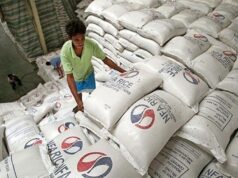
By Justine Irish D. Tabile, Reporter
THE European Chamber of Commerce of the Philippines (ECCP) and the Embassy of Norway said they are bullish on the potential for trade growth between the Philippines and the European Union (EU) as well as the European Free Trade Association (EFTA), the bloc Norway belongs to.
Paulo Duarte, president of the ECCP, said at the launch of the Doing Business in the Philippines Guide Book 2024 on Wednesday that the chamber has a positive outlook for the growth of trade.
Mr. Duarte said the Philippines is giving off strong growth signals even in the face of disruptions such as the Russian-Ukraine war, the Israel-Hamas war and attacks on shipping in the Red Sea.
“Despite all of these, we remain mostly positive with regard to the performance of the Philippine economy, even in 2024,” he said.
“I think we have good elements and good tailwinds. We just found out that the Philippines achieved, in 2023, the highest GDP (gross domestic product) growth in ASEAN with 5.6%,” he added.
The Philippine Statistics Authority (PSA) reported that the economy grew 5.6% in 2023 against the 7.6% expansion in 2022 and the 6-7% target for the year.
However, he said inflation continues to loom over the economy’s performance.
“Inflation added up last year at 6% and the expectation is to control it this year within the range of 2-4%. But still, some work (needs) to be done there,” he said.
“But with all the highlights — the population, the growth of the middle class, and the young population — as well as digitalization which will help in reducing inefficiencies and increase the attractiveness for investment, we remain positive,” he added.
Philippine exports to the EU in 2022 totaled $8.43 billion, while imports from amounted to $7.8 billion, according to the Department of Trade and Industry.
Meanwhile, Norwegian Ambassador to the Philippines Christian Halaas Lyster said trade between the EFTA countries (Norway, Iceland, Liechtenstein and Switzerland) and the Philippines has been growing since the ratification of the EFTA-Philippines free trade agreement (FTA) in 2018.
“Based on the agreement, we have been seeing, in recent years, that imports to the EFTA countries from the Philippines have been growing and in 2022 surpassed 350 million euros,” Mr. Lyster said.
“In the same year exports from the EFTA countries to the Philippines (hit a record) 433 million euros. So in that regard, it looks like the FTA is working,” he added.
However, he said there is still room for growth in trade.
“What we are seeing is that even though we see that export, imports, and trade relations are growing, we also see, based on the preliminary analysis over the first years, that the agreement has not reached its potential yet,” Mr. Lyster said.
“Right now, there is momentum and we also have the EU-Philippines free trade developments. We see that also as having potential. We also see that in the Philippines a lot of good policies are being put in place,” he added.
He said that if the Philippines continues to liberalize renewable energy investment and introduce other such polices, the potential for trade growth will be maximized.
“Our encouragement to the Philippines is to continue to develop and implement good policies and to avoid bad policies … that is basically the way forward,” he said.
“We have a very positive outlook but of course there are still issues that need to be dealt with that are also very important for the EFTA countries,” he added.
He said corruption and red tape must be addressed to further increase trade with EFTA and to make the country more investor- and business-friendly in general.
Congress is seeking constitutional amendments to alleviate economic challenges, which EU Ambassador Luc Veron said does not represent a major concern for foreign investors.
“Most of the things that we are discussing include the ease of doing business and so on. I know the Constitution has no impact, as (the concerns are) mostly on legislation or rules and regulations,” Mr. Veron said.
“A lot can be done without touching the Constitution. As to what the Philippines will decide in terms of its Constitution, we will of course, look at the results of these political debates … we will look at the impact it may have on foreign investment and ease of doing business, and so on,” he added.
Mr. Duarte said that the reforms initiated in 2022 and 2023 made the Philippines more competitive and attractive for foreign investment.
He called for more streamlining of business registration and licensing rules, easing the process of paying taxes, and ensure contracts are properly enforced to leverage reforms like the amendments to the Public Service Act, Retail Trade Liberalization Act and Foreign Investment Act.
“This is a prerequisite for building confidence among prospective and existing investors,” he added.



